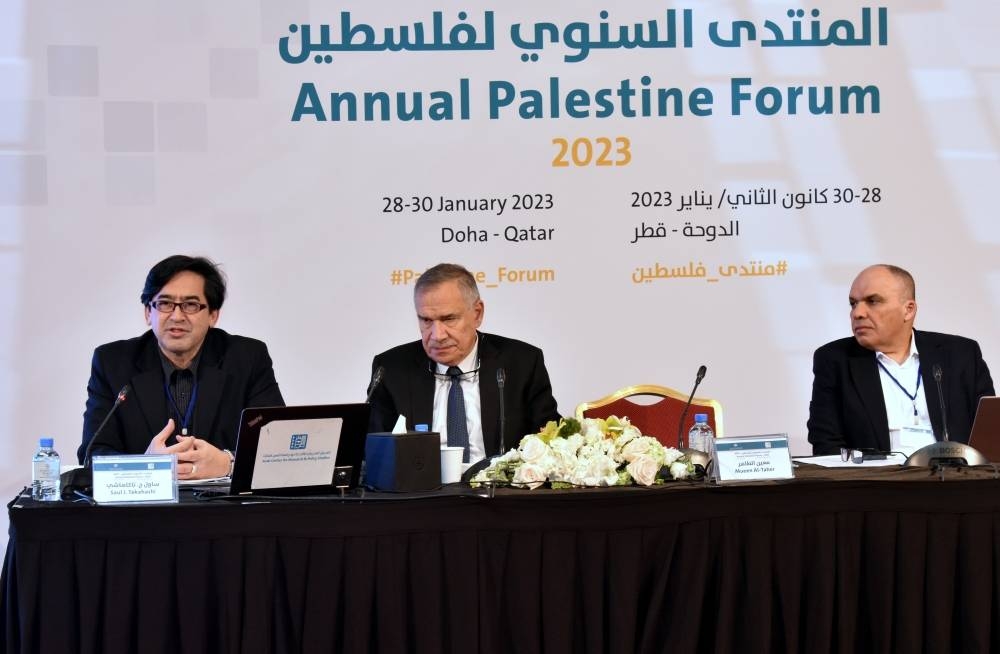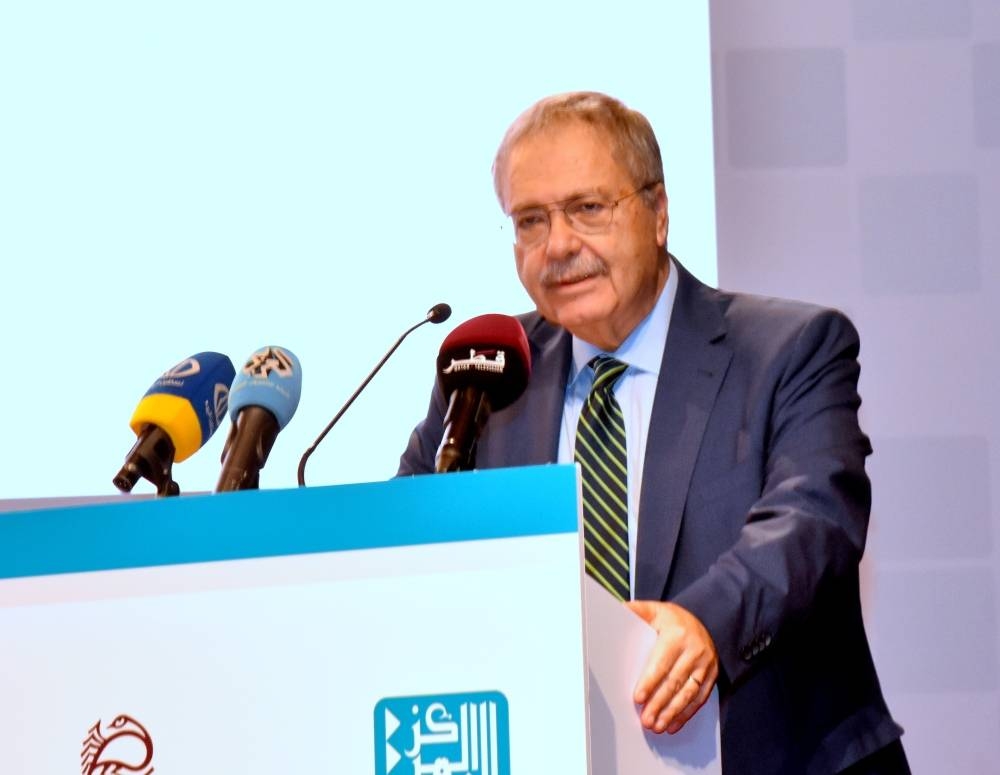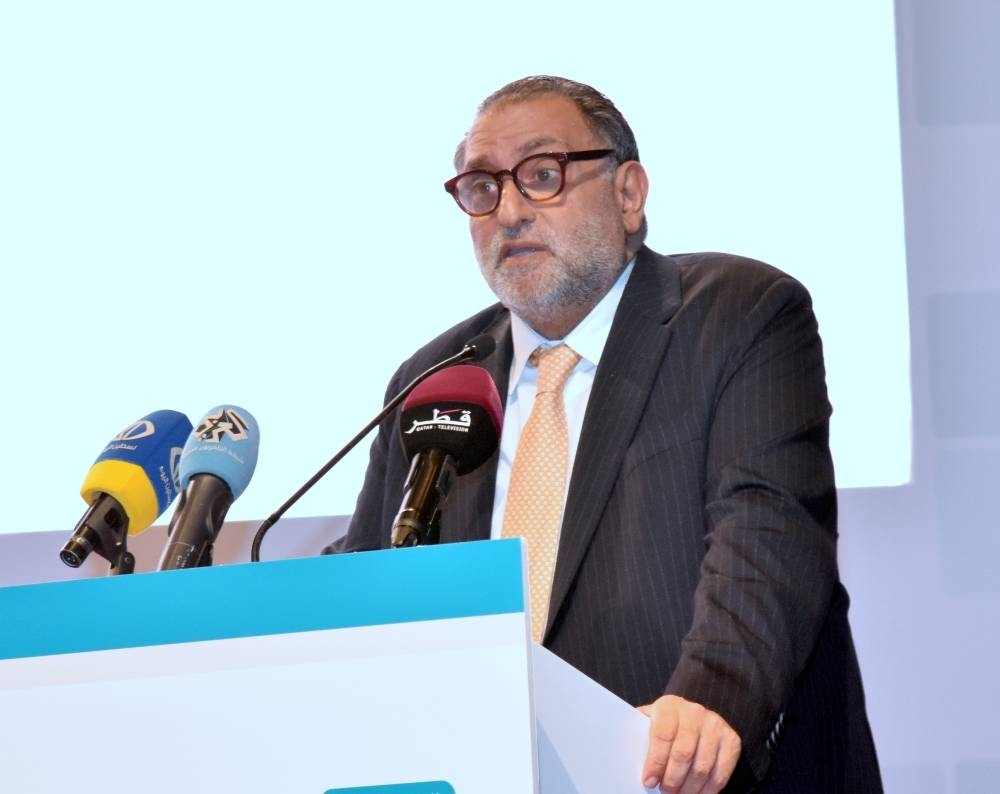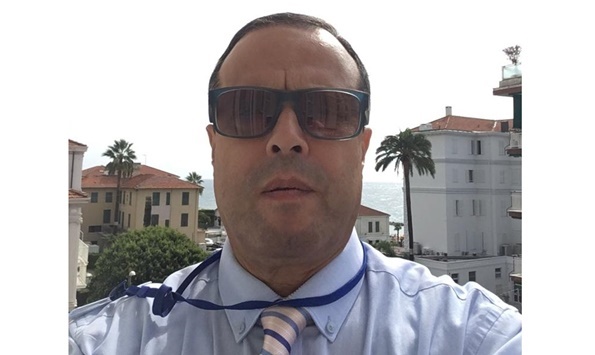A total of 15 papers were presented Monday on the third and concluding day of the inaugural Annual Palestine Forum. The last workshop also served to wrap up the forum’s discussions by directing participants’ and attendees’ attention toward reflecting on the future of the Palestinian project. The sessions of the Ostour Symposium, conducted in parallel, also concluded.
During the closing session, Azmi Bishara, general director of the Arab Centre for Research and Policy Studies stressed the success of the forum in bringing together Palestinians from across the world to share knowledge from the field of Palestinian studies in an academic environment.
Bishara then introduced Marwan Barghouti, political figure and political prisoner for the last 21 years, whose words from the cell were read out by his partner, lawyer, and politician Fadwa Barghouti.
Barghouti discussed the challenges facing the Palestinian national project including: the struggle to return the unity of the Palestinian people through one national project, the unity of the Palestinian cause, Zionist settler colonialism, the emphasis on Arab identity, the humanitarian struggle, reinforcing the importance of resistance in all its forms, the crisis of the Palestinian national movement, the struggle for women’s right to equality and dignity, and a leading Palestinian force with a political culture that views the Palestinians as worthy of dignity, equality, and justice. Barghouti concluded by reflecting on the importance of the forum as a step that reinforces the unity of Palestinians and the unified aim of all those working for the Palestinian cause.
The first session of the third day revolved around three main themes: the legal and linguistic dimensions of settler colonialism and ethnic cleansing, gender perspectives on Palestine, and Palestine from a historical perspective. Nine papers focusing on these themes were presented. Three papers looked at the Israeli settler colonial regime from a legal and linguistic lens.
In his paper 'Ethnic Cleansing as a Tool for Consolidating Settler Colonialism and Apartheid in Jerusalem', Nizar Ayoub studied the policy of systematic ethnic cleansing as a tool of the Israeli settler colonial regime to maintain a Jewish majority in Jerusalem.'
Three other papers focused on the theme of gender and Palestine. Camelia Ibrahim-Dwairy’s paper, titled 'The Case of Single Palestinian Men in Israel: Between Patriarchal and Israeli Oppression', examined the discourse of single Palestinian men living within the Green Line amid a patriarchal society.
A further three papers discussed Palestine from a historical perspective. In a paper titled 'Mā kānsh fīh!: Oral Narratives as a Missing Source for the Military Historiography of the Palestine War 1947-1949', Bilal Shalash reviewed the outputs of two projects, a Birzeit University project on depopulated villages and the Nakba Testimony Programme, which reflect the military history of the 1948 war.
The second session of the third day centred on two themes: the impact of settler colonialism on the environment and agriculture in Palestine, and Palestine in literary discourse. Three papers studied the impact of settler colonialism on the environment and agriculture in Palestine.
Yasmin Qaadan’s paper 'Environment Meanings from the Language of Local Knowledge for the Movement of Palestinian Peasants' offered a political ecology perspective of settler colonialism through its ethnographic research of Palestinian peasants. Three additional papers were presented on Palestine in literary discourse. Abdelrahman S Abuaber presented his paper 'The Stranger’s Mirrors: Place, Time, and Questions of the Self in Biographical Writing', which aimed to give organic theoretical attention to biographical writing by Palestinians.
In the afternoon, the forum hosted two workshops. In the first, four speakers – Khaled Hroub, Alain Gresh, Ben White, and Yousef Munayyer – discussed changes in the representation and news coverage of Palestine in Western and Arab media discourse.
The second workshop was the closing session where Tarek Mitri, chairman, Institute for Palestine Studies Board of Trustees, and Bishara, opened the floor for a discussion for participants to reflect on the question of what is to be done and the future of the Palestinian national project.

The legal and linguistic dimensions of settler colonialism and ethnic cleansing panel Monday. PICTURE: Thajudheen

Tarek Mitri. PICTURE: Thajudheen

Azmi Bishara. PICTURE: Thajudheen

